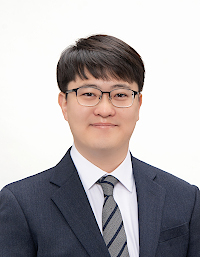Prof. Jin-Soo KIM
Prof. Jin-Soo Kim obtained Bachelor (2010) and Master (2013) degrees both in Seoul National University in South Korea. He worked 3 years as a researcher in the Korea Institute of Ocean Science and Technology and Pohang University of Science and Technology for alternative service in an agency appointed by the Korean administration for Military Manpower Administration. He received his PhD in Climate Dynamics from the Pohang University of Science and Technology in 2019 with the Best Thesis Award in the field of Natural Science. His doctoral dissertation was focused on two-way interactions between terrestrial ecosystem and climate system including El Niño-Southern Oscillation-related carbon cycle, Arctic warming-related frost damage, and physiological forcing on Arctic amplification. Before joining the School of Energy and Environment, he worked on fire dynamics as a Postdoctoral Researcher at the University of Edinburgh and Senior Researcher at the University of Zurich. Prof. Kim’s research is focusing on Climate System science, Earth System modelling, Terrestrial carbon cycle, Carbon-Climate feedback, and Fire dynamics.
Research Interests
Prof. Kim’s research emphasizes the understanding of climate system dynamics and providing accurate future climate change projections based on carbon-climate feedback research.
- Climate variability and relevant ecosystem productivity response
- Climate risk on carbon neutrality, agricultural productivity, and wildfire
- Carbon uptake evolution in Hong Kong and East Asia under greenhouse gas warming scenarios
- Developing parameterization for fire-climate interactions
- Methane emission from wetland and its future projection
Position(s) available
We are looking for passionate and enthusiastic students (undergraduate internship/MPhil/PhD) and postdoctoral researchers to join Kim’s lab. Kim’s lab welcomes members with strong motivation in climate and environmental issues, but regardless of academic knowledge and background. To apply, please contact Prof. Jin-Soo KIM directly with the CV and cover letter (1 page). Review of applications will begin immediately until the positions are filled.
Selected Publications
- Kim, J.-S., J.-S. Kug, S.-J. Jeong, J.-H. Yoon, N. Zeng, J. Hong, J.-H. Jeong, Y. Zhao, X. Chen, K. Ichii, M. Williams & G. Schaepman-Strub (2022), Arctic warming-induced cold damage to East Asian terrestrial ecosystems, Communications Earth & Environment, 3, 16, doi:10.1038/s43247-022-00343-7
- Park, S.-W., J.-S. Kim* & J.-S. Kug* (2020), Intensification of Arctic warming as a result of CO2 physiological forcing, Nature Communications, 11, 2098, doi:10.1038/s41467-020-15924-3
- Kim, J.-S., J.-S. Kug, S.-J. Jeong, H. Park & G. Schaepman-Strub (2020), Extensive fires in southeastern Siberian permafrost linked to preceding Arctic Oscillation, Science Advances, 6(2), eaax3308, doi:10.1126/sciadv.aax3308
- Kim, J.-S., J.-S. Kug & S.-J. Jeong, (2017), Intensification of terrestrial carbon cycle related to El Niño–Southern Oscillation under greenhouse warming, Nature Communications, 8, 1674, doi:10.1038/s41467-017-01831-7
- Kim, J.-S., J.-S. Kug, S.-J. Jeong, D. N. Huntzinger, A. M. Michalak, C. R. Schwalm, Y. Wei & K. Schaefer (2017), Reduced North American terrestrial primary productivity linked to anomalous Arctic warming, Nature Geoscience, 10, 572–576, doi:10.1038/ngeo2986

| Office: | YEUNG-B5437 |
|---|---|
| Phone: | +(852)-3442-7981 |
| Fax: | +(852)-3442-0688 |
| Email: | Jinsoo.Kim@cityu.edu.hk |
| Google Scholar: | External Link |
| Web: | Carbon-Climate Interaction Lab |
- Climate variability and relevant ecosystem productivity response
- Climate risk on carbon neutrality, agricultural productivity, and wildfire
- Carbon uptake evolution in Hong Kong and East Asia under greenhouse gas warming scenarios
- Developing parameterization for fire-climate interactions
- Methane emission from wetland and its future projection